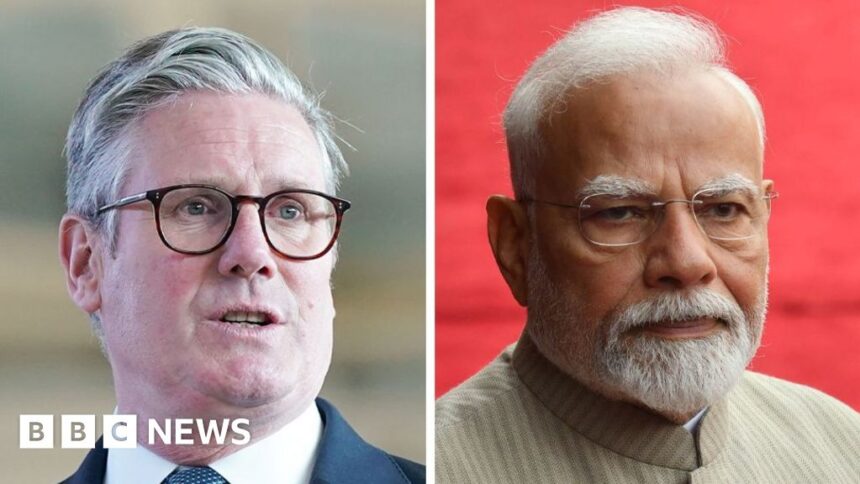UK and India Sign Trade Deal: Boost for British Economy
The UK and India have agreed a landmark trade deal that will make it easier for UK firms to export whisky, cars, and other products to India, and cut taxes on India’s clothing and footwear exports. The deal, which took three years to reach, does not include any change in immigration policy, including towards Indian students studying in the UK.
Key Highlights:
- Trade Boost: The deal is expected to boost UK exports by an additional £25.5 billion a year by 2040.
- Tariffs Reduction: Tariffs on clothing and footwear, cars, foodstuffs, jewelry, and gems will be reduced.
- Economic Growth: The deal is seen as a win for free trade, following US President Donald Trump’s tariff campaign.
India’s Perspective:
India’s prime minister, Narendra Modi, described the agreement as an historic milestone that was "ambitious and mutually beneficial." The pact would help "catalyse trade, investment, growth, job creation, and innovation in both our economies."
UK’s Perspective:
The British government said the deal was the "biggest and most economically significant" bilateral trade agreement the UK had signed since leaving the European Union in 2020. UK Business Secretary Jonathan Reynolds said the benefits for UK businesses and consumers were "massive."
Concerns and Criticism:
However, some politicians and trade experts have raised concerns about the deal. Leader of the opposition Kemi Badenoch described the agreement as "two-tier taxes from two-tier Keir," with Labour’s increase in employer National Insurance contributions coming into force last month. Shadow trade secretary Andrew Griffith said the deal was "very worrying," while Liberal Democrat deputy leader Daisy Cooper called for MPs to be allowed to vote on the deal.
Conclusion:
The trade deal is seen as a significant step forward for free trade, following US President Donald Trump’s tariff campaign. It is expected to boost UK exports and create new opportunities for UK businesses in the Indian market.







